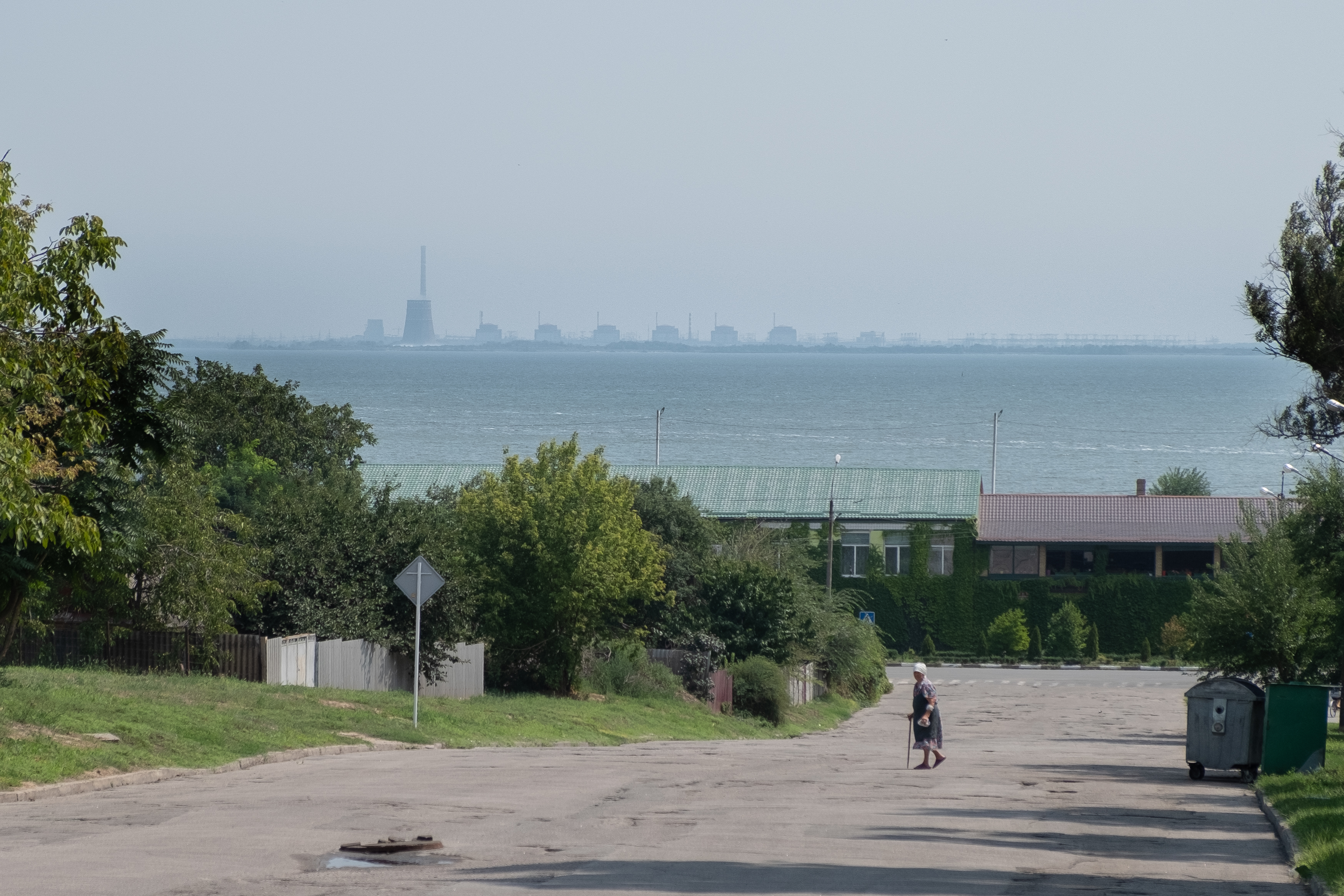IAEA chief presents deal to protect Russian-occupied Zaporizhzhia nuclear plant.
Director General of the International Atomic Energy Agency (IAEA) Rafael Grossi presented[1] an updated agreement to protect the occupied Zaporizhzhia Nuclear Power Plant at a May 30 meeting of the UN Security Council. The agreement outlines five principles to help prevent a nuclear accident at the plant occupied by Russian troops over a year ago. Grossi said he had identified these principles in consultations with Ukraine and Russia and asked both sides to adhere to them.
According to those principles, no attacks should be conducted from or against the plant, in particular targeting the reactors' spent nuclear fuel storage, other critical infrastructure, or personnel. Another rule is that the plant should not be used as storage for heavy weapons, like tanks, rocket launchers, artillery systems, and ammunition, or as a base for military personnel.
Life on the front line of Russia's new nuclear brinkmanship On nights when he hears them, Mykhailo Kling runs to his panoramic ninth-floor balcony in Nikopol to watch Russian rockets being fired at his hometown. "See the reactor buildings there," he said, pointing across the wide expanse of the Dnipro River at the eerie shapes of the Zaporizhzhia...
 [2]
[2]
The plant's off-site power should remain available and secure at all times, the agreement says, while all structures, systems, and components necessary for the safe and reliable operation of the plant must be protected from attacks or acts of sabotage.
IAEA experts stationed at the Zaporizhzhia are expected to monitor compliance with those principles and report any violations to Grossi. The new plan is less ambitious than Grossi's initial efforts to create a full-fledged "protection zone" around the plant, the idea which "has long been abandoned," according to a diplomat, cited [3]by Reuters. Europe's largest nuclear power plant, located in occupied Enerhodar, Zaporizhzhia Oblast, has been held by Russian troops since March 4.
It was fully disconnected from the Ukrainian power grid several times due to regular Russian attacks on the country's energy infrastructure. Since Russian forces occupied the plant, they have used it as a military base from which to launch attacks at Ukrainian-controlled territory across the Dnipro River, in particular, Nikopol.
Life near Russian-occupied nuclear plant: 'I don't know if tomorrow will come' Editor's Note: The Kyiv Independent talked to residents who are still in Russian-occupied Enerhodar and those who recently left but still have family in the city.
For their safety, we do not disclose their identities. When Russian soldiers captured Enerhodar, the satellite city of the Zaporizhzhia...
 [4]
[4]  Dinara Khalilova
Dinara Khalilova
News editor
Dinara Khalilova is a news editor at the Kyiv Independent. She has previously worked as a fixer and local producer for Sky News.
Dinara holds a BA in journalism from Taras Shevchenko National University of Kyiv and a Master's degree in media and communication from Bournemouth University in the UK.
References
- ^ presented (www.iaea.org)
- ^ Life on the front line of Russia's new nuclear brinkmanshipOn nights when he hears them, Mykhailo Kling runs to his panoramic ninth-floor balcony in Nikopol to watch Russian rockets being fired at his hometown. "See the reactor buildings there," he said, pointing across the wide expanse of the Dnipro River at the eerie shapes of the Zaporizhzhia... (kyivindependent.com)
- ^ cited (kyivindependent.com)
- ^ Life near Russian-occupied nuclear plant: 'I don't know if tomorrow will come'Editor's Note: The Kyiv Independent talked to residents who are still in Russian-occupied Enerhodar and those who recently left but still have family in the city.
For their safety, we do not disclose their identities.
When Russian soldiers captured Enerhodar, the satellite city of the Zaporizhzhia...
(kyivindependent.com)